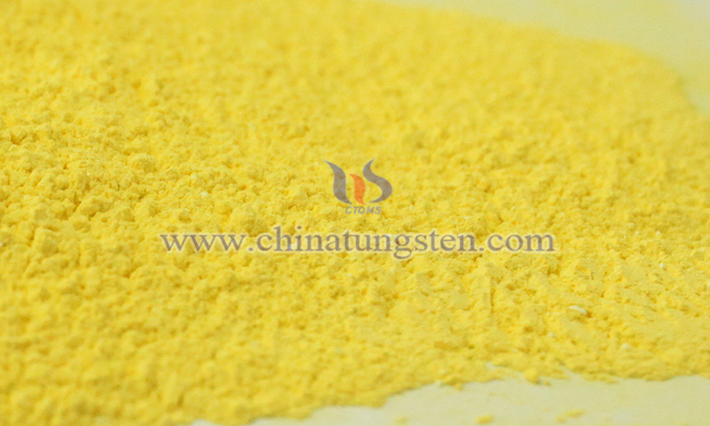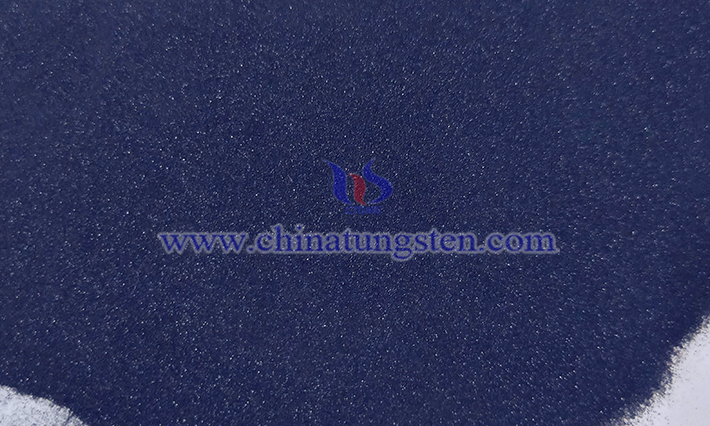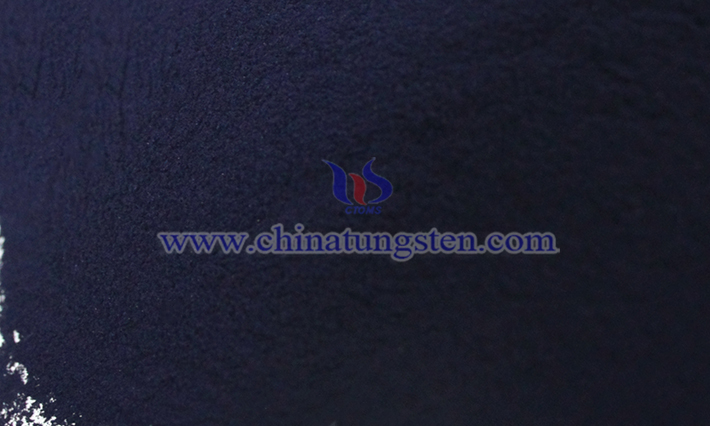Why Does China Impose Export Controls on Tungsten Oxide?
- Details
- Category: Tungsten's News
- Published on Wednesday, 12 February 2025 19:25
Amid increasing tensions in the international economic and geopolitical landscape, the strategic significance of resources, especially rare metals and their compounds, has become increasingly prominent, often serving as key bargaining chips in international relations.
On February 4th, the Ministry of Commerce and the General Administration of Customs decided to implement export controls on items including tungsten oxide. This measure not only reflects China's determination to safeguard national security and interests but also underscores the importance and strategic position of tungsten oxide.

I. Tungsten Oxide and Its Applications
Tungsten oxide (WO3) is a versatile key compound.
Tungsten oxide is a vital raw material for producing tungsten metal powder and tungsten carbide powder, which are further used to manufacture cemented carbides such as tungsten steel, cutting tools, and drill bits. Due to their high hardness, wear resistance, and corrosion resistance, cemented carbides play an irreplaceable role in fields like machining, mining, and oil drilling.
Tungsten oxide also serves as an efficient catalyst widely used in petrochemicals and chemical synthesis. It catalyzes various chemical reactions such as hydrogenation, dehydrogenation, oxidation, and reduction. By adjusting its structure and morphology, catalytic performance can be optimized for different reaction conditions.
Tungsten oxide demonstrates immense potential in new energy applications. For instance, in solar cells, tungsten oxide can act as a photoanode material to enhance photoelectric conversion efficiency. In lithium-ion batteries, it can serve as an anode material, supporting higher energy density and longer cycle life.
In aerospace, tungsten alloy materials derived from tungsten oxide are used for high-temperature structural materials and coatings due to their high-temperature stability and excellent mechanical properties.
In national defense and military, tungsten oxide is used to make stealth materials and electromagnetic interference protection materials due to its excellent microwave absorbing and electromagnetic shielding properties.
Furthermore, tungsten oxide has broad application prospects in electrochromic materials, sensors, optical coatings, high-temperature insulation materials, and fire-resistant fabrics. It is one of the indispensable high-tech materials in the optoelectronic information industry and construction industry.

II. Strategic Significance of Tungsten Oxide
Given tungsten oxide's extensive applications in multiple key fields, its strategic significance is self-evident. As the world's largest tungsten producer, accounting for about 80% of global production, China occupies a pivotal position in the global tungsten supply chain. Therefore, implementing export controls on tungsten oxide not only effectively protects national resources but also reshapes the global supply chain landscape.
From a national security perspective, rare metals like tungsten oxide have a strategic status comparable to "oil in the 21st century". They serve as both "lubricants" for upgrading traditional industries and "catalysts" for new types of productivity such as new energy and semiconductors. By imposing export controls, China can prevent these critical materials from flowing to potential adversaries and being used in high-precision weapons or satellite technologies, thereby safeguarding national security and interests.
From an economic perspective, export controls on rare metals such as tungsten oxide help enhance China's voice and dominance in the global industrial chain. This not only promotes domestic industrial upgrading and the production of high-value-added products but also strengthens China's stability and influence in the global supply chain.

III. International Reactions and Impacts of Export Controls
After China imposed export controls on rare metals such as tungsten oxide, it attracted widespread international attention. Some Western countries expressed concerns that the global tungsten supply chain could be disrupted, severely impeding the development of related industries. To address this challenge, they began seeking to expand tungsten mining and processing operations and find alternative supply channels. However, due to the scarcity of tungsten resources and the high costs of mining and processing, it is difficult to compensate for the supply gap in the short term.
In response to international reactions, a spokesperson for China's Ministry of Commerce clarified that implementing export controls on tungsten and related items is a common international practice. As a major producer and exporter of tungsten and related items globally, China has steadfastly fulfilled international obligations such as non-proliferation and imposed export controls on specific related items according to the law to safeguard national security and interests. The addition of related items reflects the regulatory concept of balancing development and security, conducive to better safeguarding national security and interests, fulfilling international obligations such as non-proliferation, and ensuring the safety and stability of the global industrial and supply chains.
In summary, China's imposition of export controls on tungsten oxide stems from dual considerations of national security and economic development. Through this measure, China can better protect national resources, safeguard national security and interests, promote domestic industrial upgrading, and enhance its voice and dominance in the global industrial chain. This strategic decision is not only an active response to the current international situation but also a far-reaching layout for the future global supply chain landscape.
- Chinatungsten Online: www.chinatungsten.com
- CTIA GROUP LTD: en.ctia.group
- Tungsten News & Price: www.ctia.com.cn
- Molybdenum News & Price: news.molybdenum.com.cn
- Tel.: 86 592 5129696; Email: sales@chinatungsten.com



 sales@chinatungsten.com
sales@chinatungsten.com